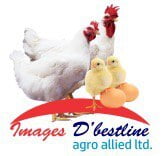Raising your own Birds
Poultry keeping is the practice of raising domesticated birds such as chickens, turkeys, ducks, and geese for their meat, eggs, and feathers. This practice has been around for thousands of years, and it continues to be an important part of modern agriculture. In this essay, we will explore the benefits of poultry keeping, the different types of birds that can be raised, and some of the challenges involved in this practice.
One of the primary benefits of poultry keeping is the production of fresh eggs and meat. Chickens, in particular, are an excellent source of both. They are relatively easy to raise and require only basic care, such as providing them with clean water and food, and a safe place to roost at night. In return, they provide a steady supply of eggs and meat, which can be sold or used for personal consumption.
In addition to their utility as a food source, poultry birds can also provide valuable fertilizer for crops. Their droppings are rich in nitrogen, phosphorus, and potassium, which are essential nutrients for plant growth. By raising poultry birds and collecting their droppings, farmers can reduce their reliance on chemical fertilizers and improve the quality of their crops.
There are many different types of birds that can be raised for poultry keeping. Chickens are the most common, but turkeys, ducks, and geese are also popular choices. Each type of bird has its own unique characteristics and requirements, so it is important to choose the right type of bird for your specific needs.
For example, chickens are a good choice for beginners because they are easy to care for and provide a reliable source of eggs and meat. They also come in a wide range of breeds, each with its own unique characteristics, such as egg color, size, and meat quality. Turkeys, on the other hand, are larger and require more space and specialized care, but they provide a higher yield of meat per bird. Ducks and geese are also good choices for meat and egg production, but they require access to water for swimming and bathing.
Despite the many benefits of poultry keeping, there are also some challenges involved. One of the biggest challenges is disease prevention. Poultry birds are susceptible to a variety of diseases, many of which can be deadly if left untreated. To prevent the spread of disease, it is important to provide clean living conditions, avoid overcrowding, and practice good hygiene, such as washing hands and equipment regularly.
Another challenge is predator control. Poultry birds are often targeted by predators such as foxes, raccoons, and hawks, so it is important to take steps to protect them. This can include building secure coops and fencing, using guard dogs or other deterrents, and taking steps to eliminate potential hiding places for predators.
In conclusion, poultry keeping is a valuable practice that can provide a steady source of food and fertilizer for farmers and homesteaders. By raising domesticated birds such as chickens, turkeys, ducks, and geese, individuals can enjoy fresh eggs and meat while also improving the health and productivity of their crops. While there are some challenges involved in poultry keeping, such as disease prevention and predator control, these can be managed with proper care and attention to detail. Overall, poultry keeping is a rewarding and worthwhile endeavor for anyone interested in sustainable agriculture and self-sufficiency.
